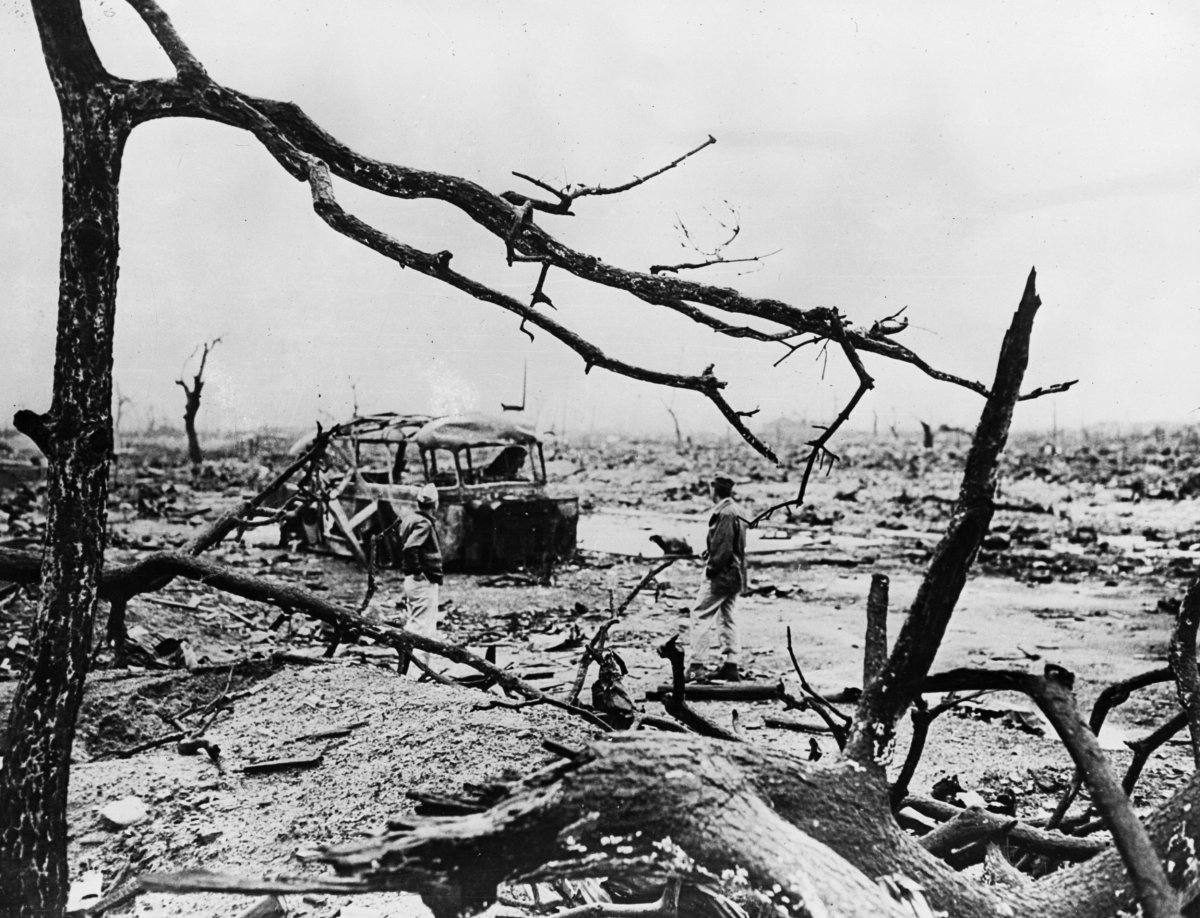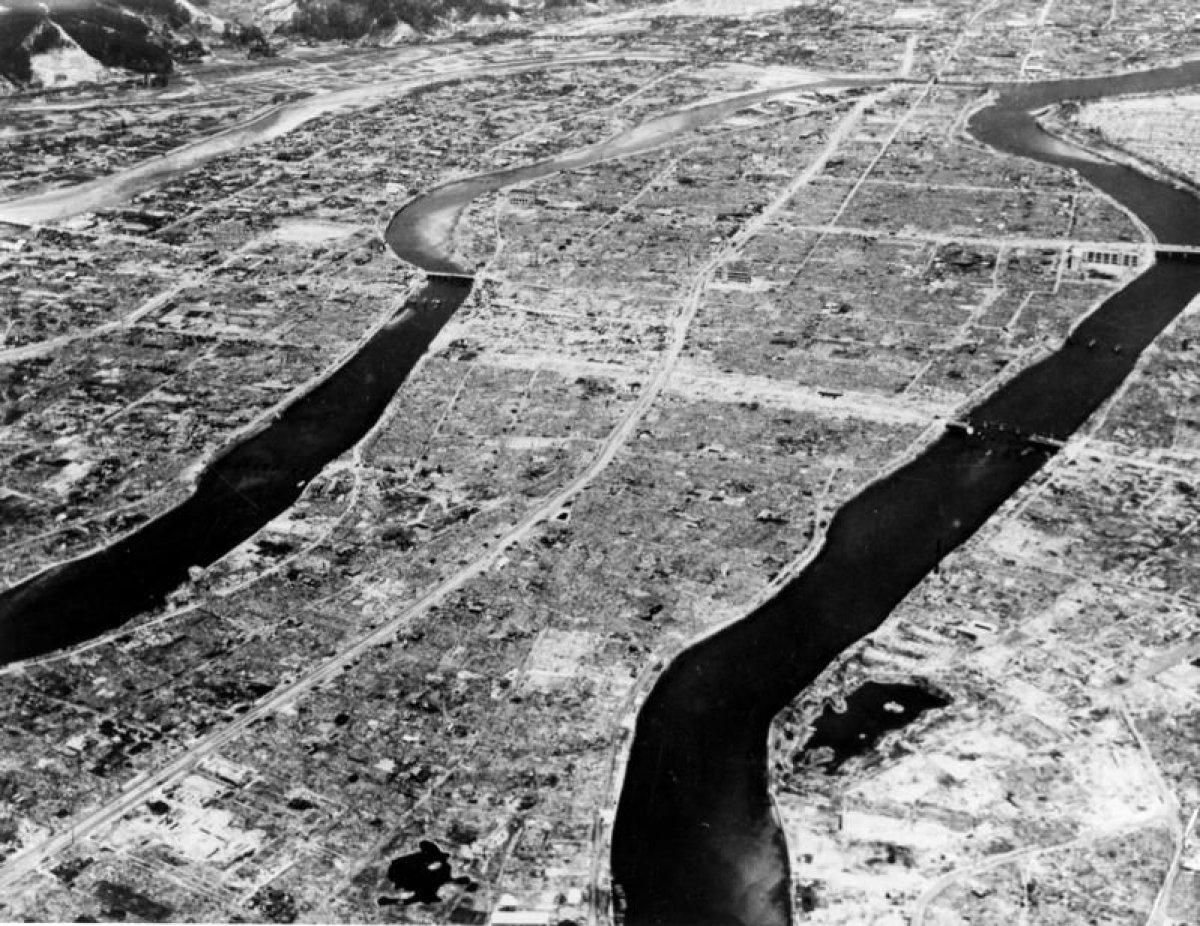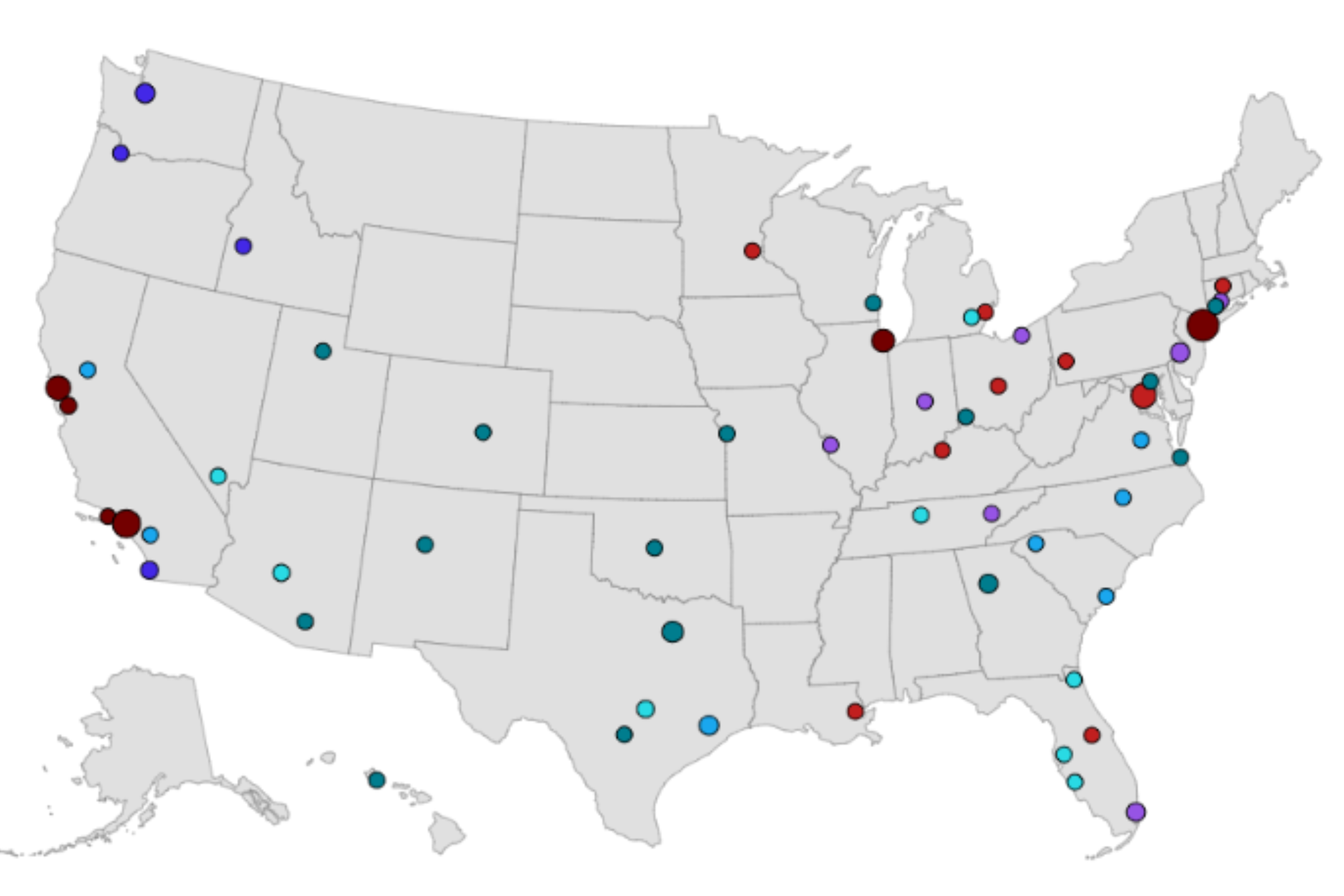On August 6, 1945, Hiroshima was hit by the world's first atomic bomb. Every building within a mile was leveled instantly by the blast, codenamed "Little Boy," killing seventy thousand people in the Japanese city instantly.
Three days later, Nagasaki became the next target and the ground zero area was completely wiped out in the blast, codenamed "Fat Man." Nearly 40,000 people were immediately killed in Nagasaki.
In both cities there were many thousands injured and more fatalities in the days to come. Radiation from the blast led to suffering among the survivors, known as 'hibakusha,' for years after.
The nukes dropped on Hiroshima and later Nagasaki brought an end to World War II. Those atomic bombs, which devastated the two Japanese cities, pale in comparison to the power of nuclear weapons today. We must remember the victims, and continue to strive for elimination of these weapons of mass destruction.
As long as nukes exist, we live under the fear of their use. You are paying for these nuclear weapons too, including a proposed modernization plan that will cost the U.S. a trillion dollars over the next few decades.
Nukes are a dangerous and expensive arms race that never ends. We must hold our leaders accountable to do everything in their power to reduce nuclear weapons globally.
President Dwight Eisenhower said that not achieving disarmament, including a ban on nuclear testing, would "have to be classed as the greatest disappointment of any administration—of any decade—of any time and of any party." Both Democrats and Republicans in the U.S. should share the goal of reducing nukes.
Today, Russia and the United States each have close to 7,000 nuclear weapons, despite existing treaties. This is the vast majority of the world's nuclear weapons stockpile.
Things could get a whole lot worse too with an escalating nuclear arms race. We must keep trying to reduce the nuclear danger with Russia.

All nuclear powers should resist an arms buildup and instead devote precious resources to a war against poverty. In 1953, Eisenhower also said the United States should "join with all nations in devoting a substantial percentage of any savings achieved by real disarmament to a fund for world aid and reconstruction…..The monuments to this new war would be roads and schools, hospitals and homes, food and health." This must remain our aspiration.
One of Eisenhower's aides, General Andrew Goodpaster, teamed up with General Lee Butler in 1996 to propose the elimination of nuclear weapons worldwide. Their plan called for the U.S. and Russia to start reducing weapons even down to levels of 100-200 nukes.
The current START Treaty with Russia, signed by President Obama, takes deployed strategic nuclear warheads on each side down to about 1,550 each. Why not go even further on this treaty working down to 100-200 weapons, with an eye toward disarmament of all the different types of nukes.
Trump and Putin could do this, and it would start to save the world a lot of money that could be better spent fighting hunger, poverty and disease. World peace and stability can only be truly achieved by ending hunger and want.
One easy thing Trump could do now is finish a goal started by Eisenhower, ending nuclear weapons testing for good. The Comprehensive Nuclear Test Ban Treaty (CTBT), which bans all nuclear testing, would help prevent a Cold War-like arms race. If we don't ratify the treaty, there is the danger that Russia could break from the pact and resume nuclear testing. Getting nuke powers China, North Korea, India, Pakistan and Israel to join would also help set the stage for disarmament talks.

73 years ago, we saw the devastating impact of atomic bombs in Hiroshima and Nagasaki. Following the first attack, U.S. President Harry Truman said: "That bomb had more power than 20,000 tons of T.N.T. It had more than two thousand times the blast power of the British "Grand Slam" which is the largest bomb ever yet used in the history of warfare.
"The Japanese began the war from the air at Pearl Harbor. They have been repaid many fold."
"The greatest marvel is not the size of the enterprise, its secrecy, nor its cost, but the achievement of scientific brains in putting together infinitely complex pieces of knowledge held by many men in different fields of science into a workable plan... The fact that we can release atomic energy ushers in a new era in man's understanding of nature's forces."
The attacks did usher in a new era; a world living in fear of a repeated nuclear attack. It is estimated up to 250,000 people died as a result of bombs dropped in Japan in 1945.
We must urge our leaders to take action on reducing nuclear weapons. Starting with reducing U.S. and Russian stockpiles is a good first step. But we must eventually work toward a new plan—to eliminate these horrible weapons from the face of the Earth.
William Lambers is an author and historian whose writing has appeared in The Hill and the Huffington Post, among other news outlets.
The views expressed in this article are the author's own.
Uncommon Knowledge
Newsweek is committed to challenging conventional wisdom and finding connections in the search for common ground.
Newsweek is committed to challenging conventional wisdom and finding connections in the search for common ground.
About the writer
To read how Newsweek uses AI as a newsroom tool, Click here.








